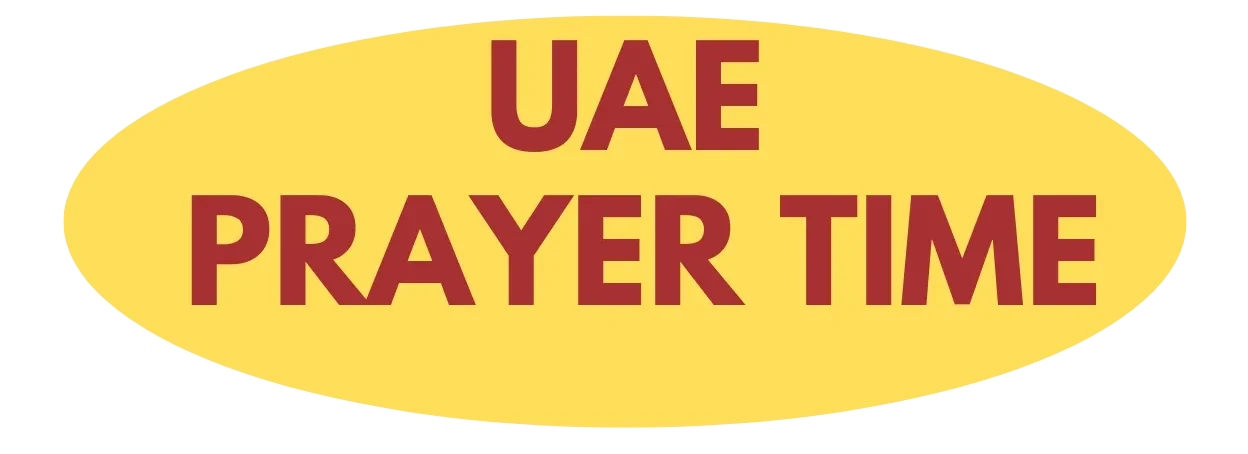Psychology research reveals something fascinating about human behavior: those tiny, unguarded moments when we think nobody’s watching actually broadcast our deepest personality traits like a neon sign. The Big Five personality framework gives us the scientific backbone to understand how these behavioral slip-ups map to stable personality dimensions that researchers have been studying for decades. Most of us have no clue we’re doing it, but our authentic selves keep peeking through the cracks of our carefully maintained public personas.
We’ve all been there. You’re chatting with someone new at work, and they seem totally put-together and charming. Then you notice how they completely lose it when the coffee machine breaks, or how they snap at the cleaning staff. Suddenly, you’re getting a very different vibe about who this person really is underneath all that polished exterior.
Your Brain Is Basically a Terrible Liar
According to organizational psychologists who study this stuff for a living, there’s this fascinating gap between who we think we are, who we want others to think we are, and who we actually are when nobody’s paying attention. It’s like your personality has multiple layers, and the real you keeps peeking through the cracks.
This happens because of something psychologists call social desirability bias. Basically, we’re all trying so hard to look good that we unconsciously edit ourselves constantly. But here’s where it gets interesting: your brain can’t keep up that performance 24/7. During those unguarded moments, your real personality traits start leaking out like water through a cracked dam.
Dana Scannell, an organizational psychologist specializing in personality assessment, explains that we’re all walking around with this internal duality happening. We’ve got our shiny public persona that we carefully maintain, and then there’s our raw, unfiltered core that drives our actual behavior when our guard is down.
The Desk Detective: Your Workspace Spills All Your Secrets
Let’s start with something super relatable that you can literally observe right now. Take a look around your workspace, whether it’s your office desk, kitchen counter, or that infamous bedroom chair where clothes go to die. Your organizational habits are basically a personality billboard that you probably never realized you were displaying.
People who score high on conscientiousness tend to maintain organized, systematic spaces even when they think nobody’s looking. But here’s what’s really fascinating: it’s not just about being neat. Research shows that highly conscientious individuals actually use organization as a psychological tool to manage anxiety and maintain control over their environment. Their brain literally feels more comfortable when everything has a designated place.
On the flip side, if your workspace looks like a creative tornado hit it, you might score higher on openness to experience. These folks often thrive in environments that look completely chaotic to everyone else but make perfect sense to them. They’re not messy—they’re operating on a different organizational wavelength that prioritizes accessibility and creative flow over traditional tidiness.
What makes this even more revealing is that these patterns show up consistently across different areas of someone’s life. The person with the perfectly organized desk probably also has their digital files sorted into labeled folders and their spice rack arranged alphabetically. It’s like their personality has a signature organizational style that follows them everywhere.
The Interruption Test: How Plot Twists Reveal Your True Colors
Want to see someone’s real character in action? Watch what happens when their day gets completely derailed by an unexpected interruption. This scenario is like a behavioral lie detector test that cuts straight through all social pretenses.
People with high emotional stability tend to roll with interruptions pretty smoothly. You’ll notice they might pause for a second, quickly assess the situation, and then adapt their plans without much internal drama. Their nervous system just doesn’t spike into crisis mode when their routine gets disrupted.
But if someone gets visibly agitated, flustered, or stressed when their flow gets interrupted, it often signals higher neuroticism. This means their brain is literally wired to perceive unexpected changes as potential threats. And here’s the thing—this isn’t good or bad, it’s just how their psychological system processes uncertainty.
The really telling part is the recovery time. Resilient personalities might feel that initial spike of frustration, but they bounce back to baseline pretty quickly. Others might carry that disrupted energy with them for hours, letting it affect their mood and performance for the rest of the day.
The Change-Up Challenge: Your Flexibility Fingerprint
Nothing reveals personality quite like watching someone deal with last-minute plan changes. This is where people’s true colors really start showing, because sudden changes bypass all our careful social conditioning and hit our raw personality traits directly.
High openness to experience personalities often get genuinely excited about spontaneous changes. Their brain is actually wired to find novelty rewarding rather than threatening. You’ll notice they immediately start brainstorming alternatives or asking curious questions about the new plan. They might even seem more energized than they were before the change happened.
Meanwhile, people who prefer structure and predictability might need a moment to mentally recalibrate. This doesn’t make them inflexible or boring—it just means their psychological comfort zone is built around consistency and preparation. They process change differently, often needing to think through all the implications before they can genuinely embrace the new direction.
The most revealing part is the emotional undertone of their response. Do they seem energized and curious about the shake-up, or does their body language suggest they’re managing mild stress? These micro-reactions happen too fast for most people to consciously fake them.
The Service Worker Barometer: The Ultimate Character Test
Psychologists have long recognized that how someone treats people who can’t do anything for them—waitstaff, customer service representatives, cleaning crews, security guards—reveals core character traits that are almost impossible to fake or perform.
This behavior taps into multiple personality dimensions simultaneously. High agreeableness shows up as consistent kindness and consideration across all social interactions, regardless of social hierarchy or personal benefit. These individuals genuinely don’t seem to have an “off switch” for treating people with basic respect and courtesy.
But it also reveals deeper attitudes about power, fairness, and social responsibility that connect to fundamental values systems. Someone who’s consistently courteous to service workers often has internalized beliefs about human dignity that go way beyond surface-level politeness or social expectations.
The Criticism Compass: How Feedback Reveals Your Psychological Core
Here’s a big one that reveals massive insights about someone’s personality structure: how they respond to criticism, especially when it’s unexpected or delivered in front of other people.
People with high agreeableness often respond to criticism by immediately trying to understand the other person’s perspective. Sometimes they’ll even over-apologize or take on blame that isn’t necessarily theirs. Their brain prioritizes maintaining harmony and connection, even when it means absorbing emotional discomfort.
Those with lower agreeableness might respond more defensively, questioning the critic’s motives or pushing back on the feedback. This isn’t necessarily about ego—it often reflects a personality style that prioritizes independence and self-advocacy over social smoothing.
But here’s what researchers find most telling: the recovery pattern. Does the person seem to genuinely process and integrate useful feedback over time, or do they get stuck in a defensive loop? How long do they carry the emotional residue of the criticism? These patterns reveal deep truths about emotional regulation and self-concept that are almost impossible to fake.
The Digital Age Personality Reveals
In our hyperconnected world, smartphone behavior has become a goldmine for personality insights. How someone uses their phone when they think nobody’s watching reveals fascinating patterns about their psychological makeup. People high in conscientiousness often have organized phone habits—apps sorted into folders, notifications managed systematically, regular cleanup of photos and messages.
High neuroticism might show up as compulsive phone checking, especially during stressful periods. These individuals often use their device as an emotional regulation tool, seeking constant connection or distraction when anxiety levels rise. Meanwhile, those high in openness to experience might have phones loaded with creative apps, unusual wallpapers, or experimental features they’re always testing.
Reading the Room: What This All Actually Means
Before you start psychoanalyzing everyone in your life, here’s the crucial nuance that psychology research emphasizes: patterns matter way more than isolated behaviors. One messy desk doesn’t make someone disorganized, and one stressed reaction doesn’t define someone’s entire emotional stability.
What researchers find meaningful are consistent behavioral themes that show up across different situations and contexts over time. It’s like your personality is constantly voting on how to respond to the world, and these everyday behaviors are the election results.
- Context is absolutely everything—cultural background, current life circumstances, physical health, and recent experiences all influence behavior in ways that can temporarily mask or amplify underlying personality traits
- Developmental factors matter too—someone going through a major life transition might display behaviors that don’t reflect their stable personality patterns
The most reliable personality insights come from observing someone across multiple scenarios—how they handle interruptions at work, changes in social plans, criticism from different sources, and stress in various forms. These patterns create a behavioral fingerprint that’s much more accurate than any single dramatic moment or carefully crafted self-presentation.
The Self-Discovery Plot Twist: What About Your Own Hidden Behaviors
Here’s where this gets really mind-bending for self-awareness: most of us are completely blind to our own unconscious behavioral patterns. We’re so inside our own experience that we don’t notice how we actually come across to others during these revealing moments.
Try this psychological experiment that might surprise you: for the next week, pay attention to your automatic responses during unguarded moments. How do you actually react when your routine gets disrupted? What’s your genuine first response to unexpected criticism? Do you notice patterns in how you treat different categories of people?
The goal isn’t to judge these behaviors as good or bad, but to recognize them as authentic expressions of your underlying personality structure. Understanding your own behavioral patterns can help you make more conscious choices about when you want to lean into your natural tendencies and when you might want to stretch outside your comfort zone.
Sometimes the most valuable insights come from asking trusted friends or family members what they’ve noticed about your unconscious patterns. They often see behavioral tendencies that are completely invisible to you but obvious to outside observers. These unconscious behaviors aren’t bugs in your personality system—they’re actually features that represent your brain’s most efficient, authentic ways of navigating the complex social world around you.
Table of Contents

